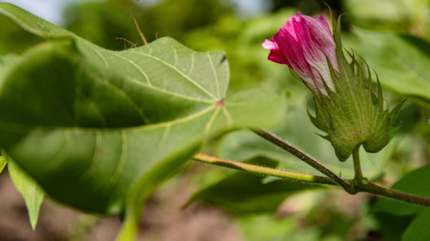
A key milestone in Benin’s textile industry development is the recent construction of a textile production centre south of Cotonou where all cotton used is verified by CmiA.
AbTF senior project manager Gerlind Baz praised the initiative and said: “African textile production is gaining momentum, and cotton made in Africa makes a major contribution to ensuring that sustainability plays a key role.”

Discover B2B Marketing That Performs
Combine business intelligence and editorial excellence to reach engaged professionals across 36 leading media platforms.
The CmiA standard supports sustainable cotton farming across Africa, covering 30% of the continent’s cotton production in 11 countries south of the Sahara and working with 900,000 small-scale farmers.
In Benin, cotton farming has adhered to CmiA standards since 2005. Together with three cotton companies in Benin, AbTF is working through its CmiA and CmiA Organic standards to improve market access for cotton producers and to make people more resilient to the effects of climate change while protecting the environment and biodiversity. Worldwide, the standard has more than 2,700 partners in the textile chain.
During World Cotton Day celebrations in early October, an AbTF delegation visited Benin alongside partners from GIZ and PAN UK to observe the CmiA project’s impact.
The group toured CmiA Organic cotton farms in the Aklampa area, meeting farmers who are part of the Growing Benin’s Organic Cotton Sector project, which improves the living conditions of small-scale farmers and helps them transition to organic practices.

US Tariffs are shifting - will you react or anticipate?
Don’t let policy changes catch you off guard. Stay proactive with real-time data and expert analysis.
By GlobalDataAround 45,500 individuals are said to benefit indirectly from this project, which is coordinated by PAN UK, implemented under the leadership of the non-governmental organisation OBEPAB (Organisation Béninoise pour la Promotion de l’Agriculture Biologique), and supported both financially and substantially by AbTF and the cotton trading company Paul Reinhart AG.
It is also supported by GIZ as part of its Sub-Saharan Cotton Initiative, with funding from the German Federal Ministry for Economic Cooperation and Development (BMZ).





